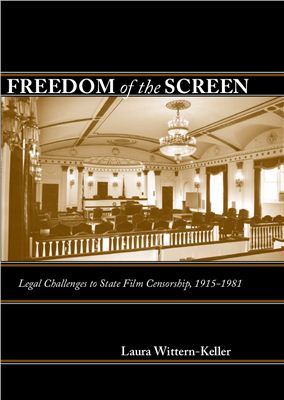Publisher: The University Press of Kentucky, 2008. 356 pages.
Language: English.
Freedom of the Screen takes the reader through the history of film censorship in the United States. Between 1907 and 1980, many state and local govements in the USA empowered motion picture censor boards with the legal authority to keep any movie they considered obscene, indecent, or harmful from being shown. Although the mainstream American film industry accepted the form of censorship known as "prior restraint", the independent distributors and exhibitors challenged the govement censors. Laura Witte-Keller devotes her study to the origins of, legal challenges to, and eventual termination of state censorship efforts, a narrative that spans most of the twentieth century.
Freedom of the Screen takes the reader through the history of film censorship in the United States. Between 1907 and 1980, many state and local govements in the USA empowered motion picture censor boards with the legal authority to keep any movie they considered obscene, indecent, or harmful from being shown. Although the mainstream American film industry accepted the form of censorship known as "prior restraint", the independent distributors and exhibitors challenged the govement censors. Laura Witte-Keller devotes her study to the origins of, legal challenges to, and eventual termination of state censorship efforts, a narrative that spans most of the twentieth century.

